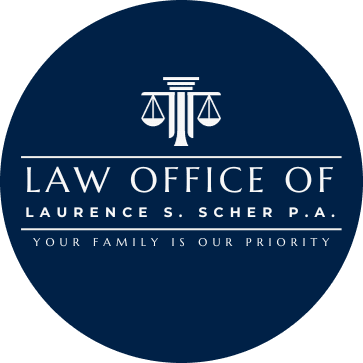
What is Alternative Dispute Resolution in Family Law? Finding Amicable Solutions

Posted on September 12th, 2024.
Have you ever paused to think about the toll traditional litigation takes on all parties involved, from the parents down to the children? The drawn-out timelines, the significant expense, and the adversarial environment—it can be a daunting road to travel.
Now picture an alternative where the focus is on mutual respect and finding common ground. This isn’t just a far-fetched ideal but a very real pathway that more individuals are choosing in their quest for resolutions that not only address their legal concerns but also preserve relationships.
Enter a different approach that aims to reshape how families can resolve their differences: Alternative Dispute Resolution (ADR).
Visualize an environment where the spotlight is on you – the participants – to shape the outcomes that best fit your unique circumstances. This would be achieved with the guidance of neutral professionals aimed at facilitating discussions and fostering cooperative problem-solving. The appeal of such a process lies in its foundation—fairness, confidentiality, and participation by choice.
Fundamentally different from the rigid and often public nature of courtroom proceedings, this method offers flexibility and privacy, allowing you to resolve sensitive family matters with dignity and respect.
What is Alternative Dispute Resolution (ADR)?
Alternative dispute resolution (ADR) encompasses a variety of processes that serve as alternatives to traditional litigation, aimed at resolving disputes without the need for a court trial. These methods are grounded in principles of fairness, confidentiality, and voluntary participation.
The keen objective is to foster an environment where parties can actively participate in crafting resolutions that best suit their unique circumstances. With family law disputes, involving matters such as divorce, child custody, and marital property, ADR offers a less adversarial and more cooperative approach. Its ascending popularity in family law stems from its capability to reduce emotional strain and litigation costs, while often achieving resolute and mutually satisfactory outcomes.
Consider the traditional court processes: time-consuming, financially draining, and emotionally harrowing. ADR, by contrast, emphasizes collaborative problem-solving, wherein parties are guided by neutral third parties such as mediators or arbitrators. These professionals aid them in identifying common ground and negotiating terms.
For many families, particularly those with children, the focus on maintaining amicable relationships post-dispute is critical. ADR offers a path that reduces conflict and promotes healthier long-term dynamics. Moreover, the flexible and private nature of ADR sessions allows for customized solutions that might not be achievable in a courtroom setting.
Alternative dispute resolution underscores the principle that the best resolutions come from cooperation. By providing a more humane and considerate framework for resolving family disputes, ADR aligns with the overarching goals of family law—to preserve relationships, prioritize the well-being of minors, and provide fairness for all involved. Such an approach not only benefits the disputing parties but also contributes positively to the broader societal fabric by minimizing the adversarial impacts of litigation.
Types of Alternative Dispute Resolution in Family Law
Let's now explore the most common types of alternative dispute resolution utilized frequently in family law:
Mediation
 In this process, an impartial third party known as a mediator facilitates the discussions between the disputing parties, helping them reach a mutually acceptable agreement. The mediator does not make decisions for the parties but rather assists in identifying issues, exploring potential solutions, and negotiating terms.
In this process, an impartial third party known as a mediator facilitates the discussions between the disputing parties, helping them reach a mutually acceptable agreement. The mediator does not make decisions for the parties but rather assists in identifying issues, exploring potential solutions, and negotiating terms.
Divorce mediators are particularly beneficial for couples going through divorce, as they emphasize cooperative problem-solving and effective communication. The confidential nature of mediation encourages open dialogue and can often lead to agreements that are more satisfactory to both parties than a court decision might be. This method promotes a sense of ownership over the resolution process, which can be key in fostering enduring, amicable relationships, especially when children are involved.
Arbitration
Arbitration involves an arbitrator who functions similarly to a judge by making binding decisions based on the evidence and arguments presented. This method is more formal than mediation but remains a private and efficient alternative to going to court. Arbitration can be particularly effective in cases where parties have significant disagreements that require a decisive resolution.
While the arbitrator’s decision is final and typically cannot be appealed, the process is faster and more flexible than traditional litigation. Importantly, the privacy of arbitration helps protect sensitive family matters from public scrutiny. Families looking to resolve disputes in a timely and confidential manner may find arbitration to be a preferable option, particularly when time-sensitive matters are at stake.
Collaborative Law
Collaborative law offers another pathway within ADR, where both parties and their respective attorneys commit to resolving disputes outside the court setting. In this process, everyone works together to reach an agreement, and if they fail and proceed to court, the collaborative attorneys withdraw from the case. This fosters a high level of commitment to finding a resolution, as both parties have a vested interest in avoiding court proceedings.
The process often involves additional professionals, such as financial advisors or mental health specialists, to provide well-rounded solutions. Collaborative law is particularly effective in family law because it emphasizes cooperation, preserves relationships, and maintains privacy.
Negotiation
Negotiation is one of the most flexible forms of ADR in family law, allowing parties to communicate directly to resolve their differences. Both parties can engage in negotiation independently or with the assistance of attorneys. The goal is to reach a mutually acceptable agreement regarding issues like divorce, child custody, or property division.
Negotiation is particularly valuable because it can occur at any stage of the dispute process, from the outset to post-litigation adjustments. This method often empowers the individuals involved, allowing them to maintain control over the outcome, rather than leaving the decision in the hands of a judge. Since negotiation is informal and private, it can save time, reduce legal costs, and preserve relationships, making it a key tool in family law cases.
Early Neutral Evaluation (ENE)
In an Early Neutral Evaluation (ENE), both parties present their case to a neutral evaluator early in the process. The evaluator, often an experienced family law attorney or retired judge, provides a non-binding assessment of the strengths and weaknesses of each side’s case, along with a likely outcome if the case were to go to trial.
ENE is especially helpful in family law cases because it gives both parties a realistic view of their positions, fostering more informed negotiations. By receiving early feedback, the parties may feel more inclined to reach a settlement before the situation escalates into a lengthy court battle. This process saves time and money, while promoting fair and balanced resolutions to family disputes.
Family Group Conferencing (FGC)
 Family Group Conferencing (FGC) is a collaborative ADR method that focuses on resolving family disputes by involving the extended family and key individuals in the decision-making process. Commonly used in cases involving children, such as custody and welfare issues, FGC brings together family members to discuss and agree upon a solution that prioritizes the child’s best interests.
Family Group Conferencing (FGC) is a collaborative ADR method that focuses on resolving family disputes by involving the extended family and key individuals in the decision-making process. Commonly used in cases involving children, such as custody and welfare issues, FGC brings together family members to discuss and agree upon a solution that prioritizes the child’s best interests.
A facilitator helps guide the conversation, but the family takes the lead in making decisions. This approach emphasizes the importance of family bonds and the ability to find solutions that reflect shared values. FGC empowers families to work together, reducing the adversarial nature of disputes and promoting long-term solutions that foster cooperation and stability.
Parent Coordination
Parent coordination is a specialized form of ADR used in high-conflict custody and visitation disputes. A parent coordinator, often a mental health professional or family law attorney, works with parents to help them resolve disputes related to their parenting plans. This method focuses on improving communication between the parents, managing conflicts, and implementing the terms of custody agreements.
In some cases, the parent coordinator may have limited authority to make binding decisions on minor issues if the parents cannot agree. Parent coordination is particularly beneficial when ongoing conflicts affect children, as it prioritizes the child’s well-being and encourages more cooperative co-parenting. This process can reduce the emotional and financial toll of frequent court battles.
Related: Getting Divorced With Kids: Understanding Family Law and Divorce Proceedings
Wrapping Up
Imagine addressing the sensitive needs of minors without the overwhelming pressure of court trials. Alternative dispute resolution not only helps in maintaining an equilibrium within personal relationships but also aligns with various aspects of legal matters that our firm handles.
At the Law Office of Laurence S. Scher P.A., our approach is specifically designed to prioritize their welfare, employing ADR techniques such as mediation to create outcomes that are both fair and conducive to ongoing positive family relationships. Whether it is dealing with a complex divorce or addressing juvenile legal matters, our commitment to individualized and empathetic approaches ensures that you receive not just legal representation but a partner in your journey towards resolution.
Are you looking for an amicable solution? Contact Us Today!
For personalized legal assistance, you can reach us at (561) 806-8777 or email us at [email protected]. By choosing our services, you are selecting a path toward more amicable and sustainable outcomes.
Legal Consultation Request
Reach out for a personalized legal consultation with our experienced team. We're here to address your legal needs and provide expert guidance.
Get in Touch
Phone number
(561) 806-8777
